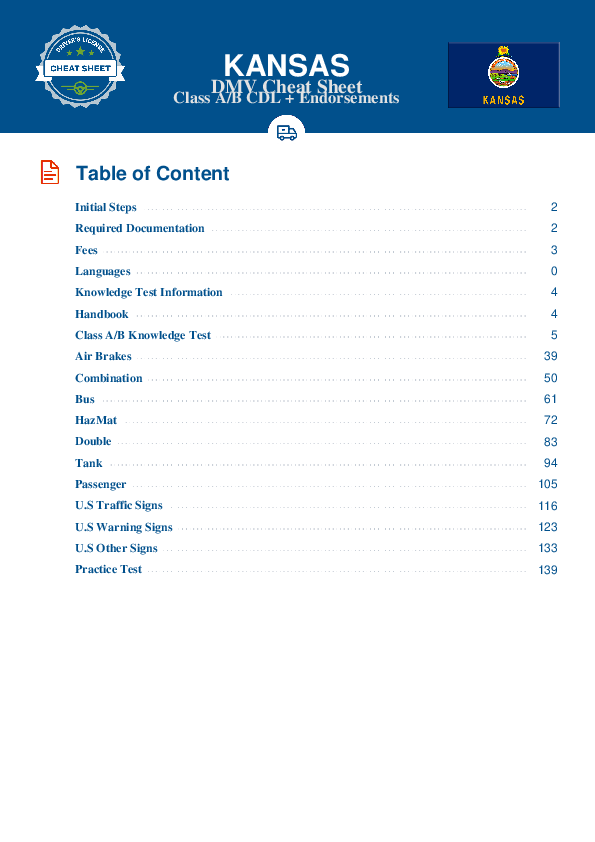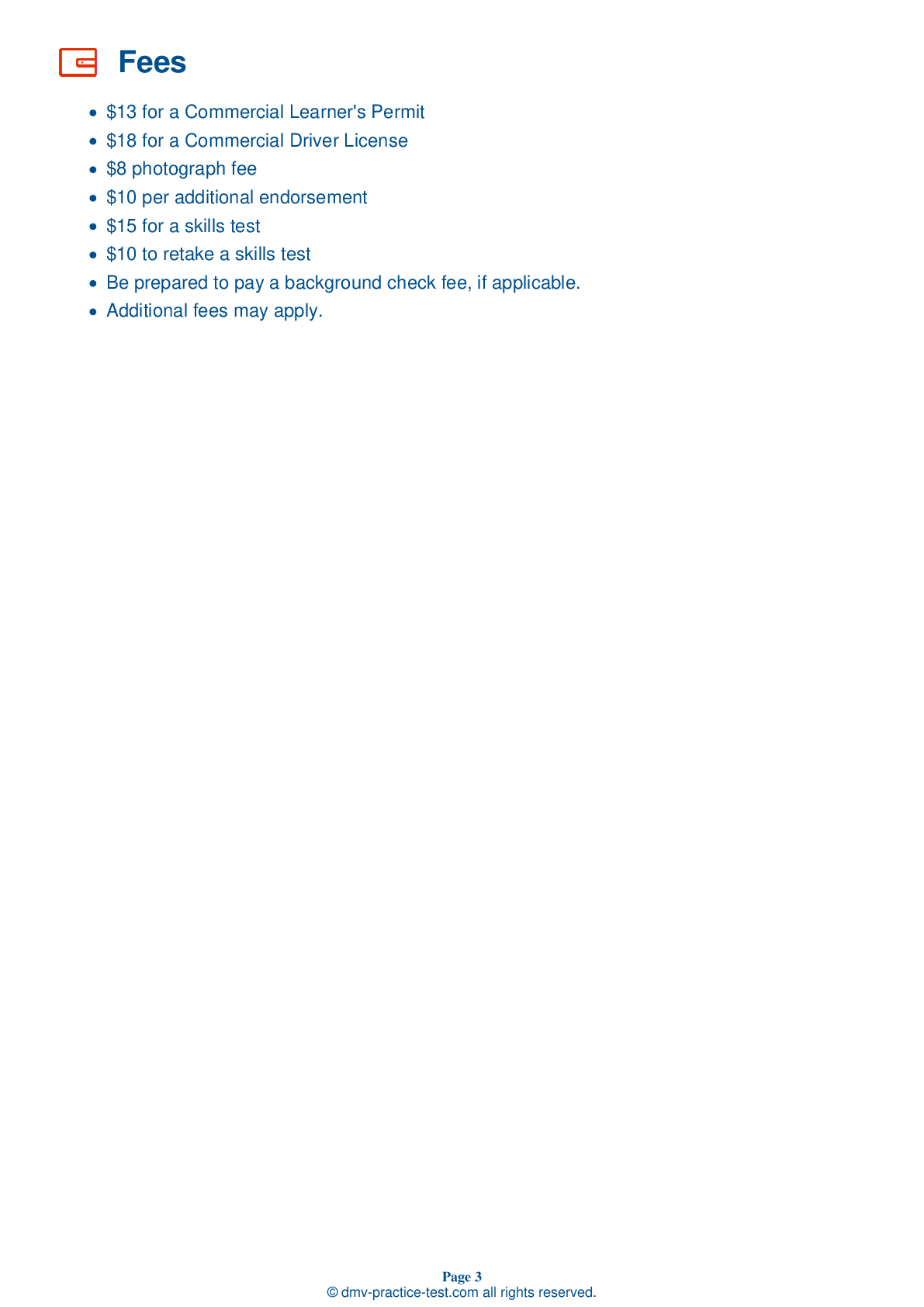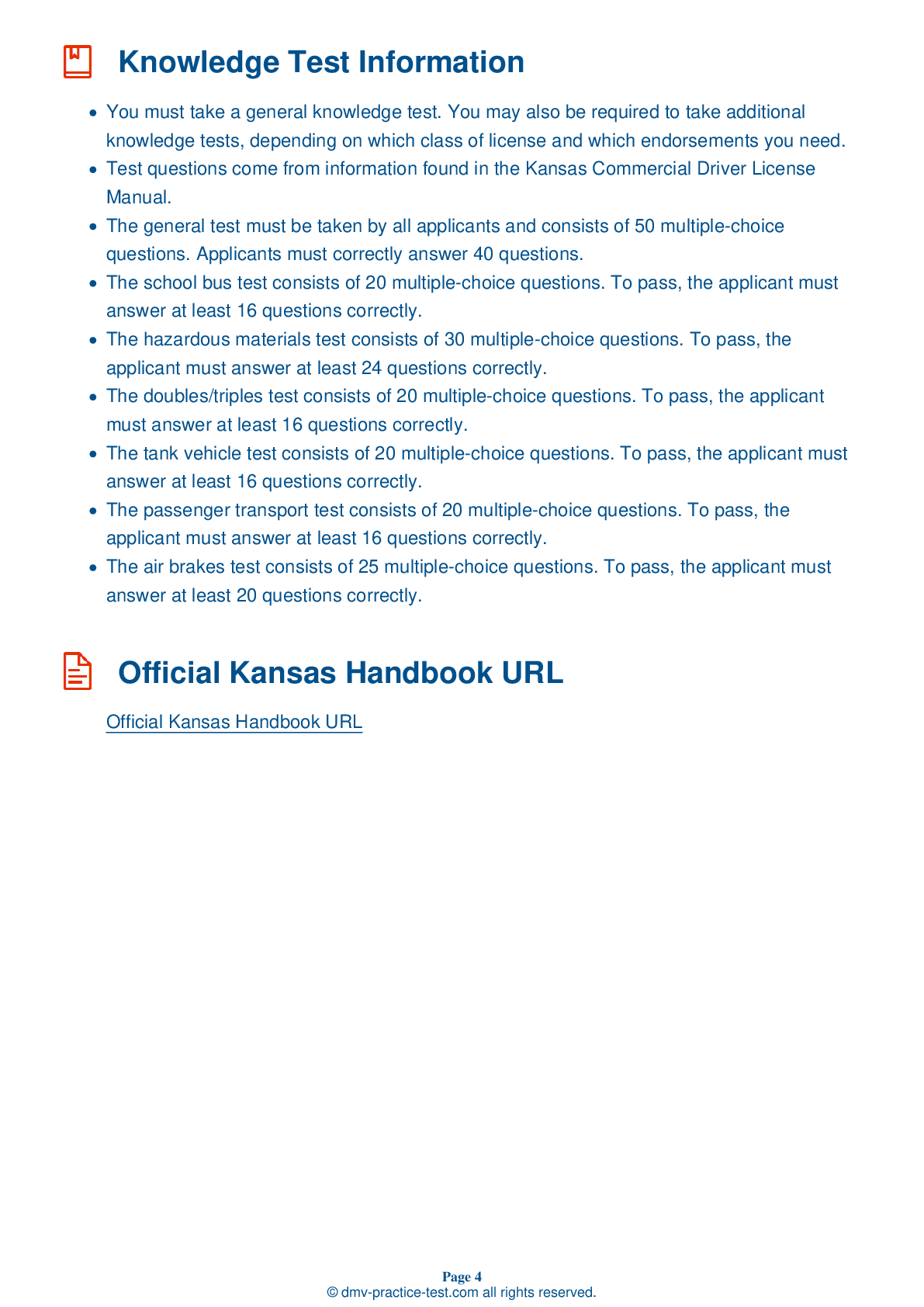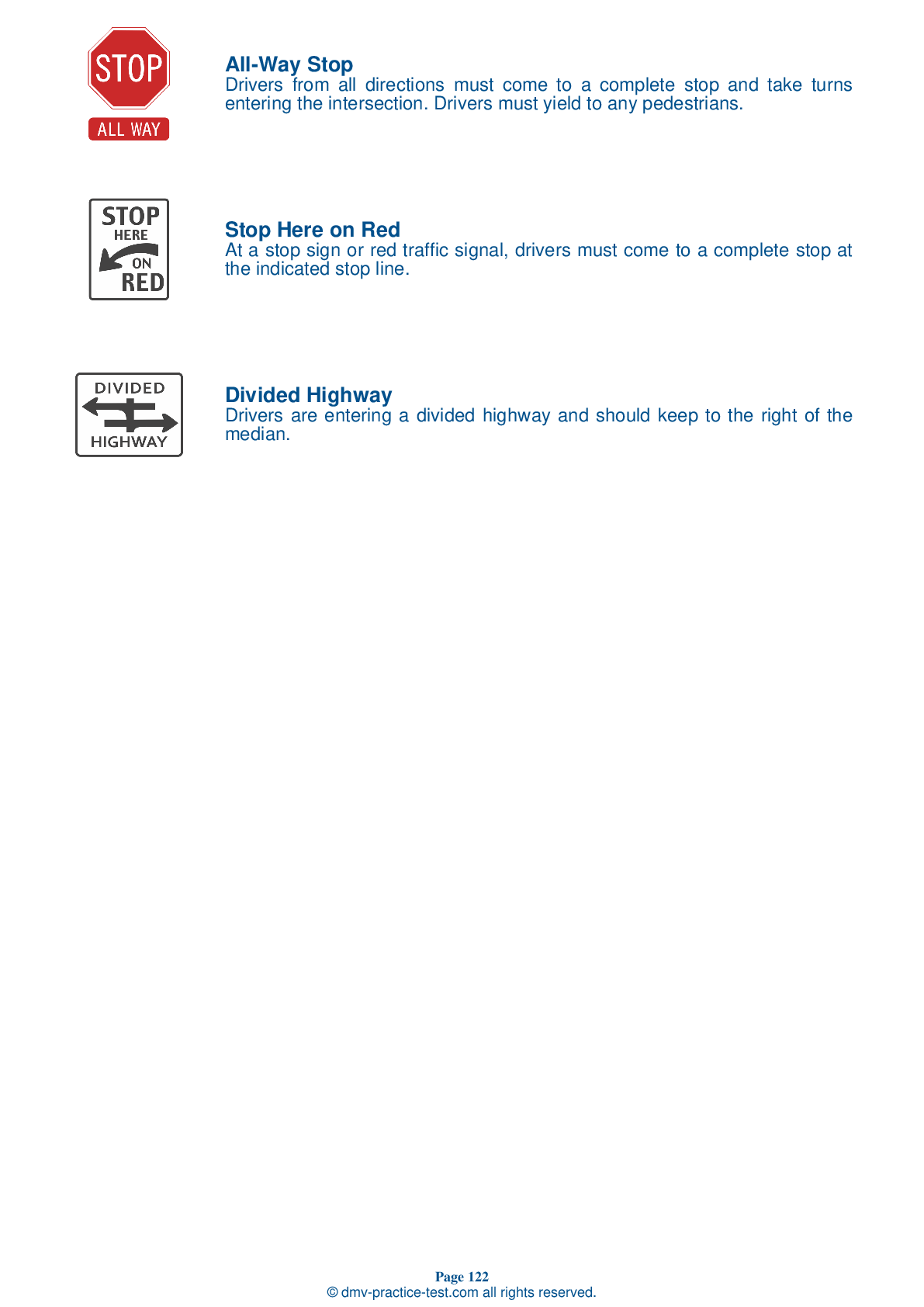Class A Driving Test | Kansas 2026 #1 Page 2 of 7
Train for FREE online with our Kansas class A license test. The official exam test consists of several obligatory parts, with all of them checking your knowledge of different blocks of road rules. If you need to obtain a KS CDL class A permit in 2026, practice as much as possible. Free sample tests published on our website will help you check and improve your knowledge and boost your grades. Please bear in mind that CDL class A requirements may vary from state to state.
8 . You may be denied a HazMat endorsement if:
You will be denied a HazMat endorsement, or lose an existing endorsement, if you are not a lawful permanent U.S. resident; you renounce your U.S. citizenship; you are wanted for, under indictment for, or convicted of certain felonies; you are judged as mentally unstable or are committed to a mental institution; or you are deemed to pose a security threat by the Transportation Security Administration (TSA).
9 . On a truck with air brakes, the braking system’s air compressor:
In an air brake system, the air compressor pumps air into the air storage tanks. The air compressor is controlled by the air compressor governor.
10 . The best way to avoid glare at night from oncoming vehicles is to:
To avoid being blinded by the lights of oncoming vehicles, you can glance to the right side of the road until the vehicle has passed.
11 . What do anti-lock brakes do?
The function of an Anti-Lock Braking System (ABS) is to prevent the vehicle's wheels from locking up from hard brake application.
12 . The height of a vehicle’s center of gravity:
The height of a vehicle's center of gravity is very important to a driver's ability to safely handle the vehicle. Always distribute the weight of cargo as low as possible.
13 . Drivers are usually the least alert:
Drivers are usually less alert when driving at night, especially after midnight.
14 . A vehicle should be equipped with all of the following, except:
Commercial vehicles should always carry the proper emergency equipment. Be sure your vehicle is equipped with at least one fire extinguisher; spare electrical fuses, unless the vehicle is equipped with circuit breakers; and warning devices for parked vehicles, such as warning triangles, fuses, or liquid burning flares.
See the exact questions that will be on the 2026 Kansas DMV exam.
99.2% of people who use the cheat sheet pass the FIRST TIME
Lillian MCcranie explains how our CDL study guide was helpful in passing the exam and recommends it to everyone.
Cameron tells us how he purchased the CDL exam, and found it to be a useful tool which helped him pass the exam and find a job.



